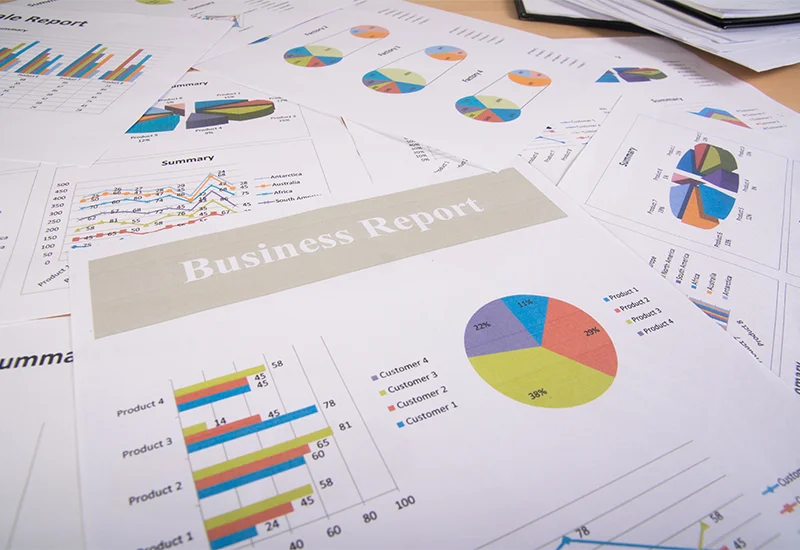Benefits of hiring a chartered accountant for your medical practice include expert guidance tailored to UK healthcare finance, helping you stay fully compliant with NHS and HMRC regulations. With their support, you can maximise allowable expenses such as medical equipment and locum fees while reducing tax liabilities. They also offer valuable cash flow forecasting to manage irregular income and provide payroll solutions that save time and prevent costly errors. To see how professional accounting can enhance your practice’s financial health, explore trusted services like Strix Accountancy or find a qualified expert via ICAEW. More insights are available at Strix Accountancy Doctors.

Key Takeaways:
- Engaging a Chartered Accountant ensures your medical practice complies with NHS structures, HMRC regulations, and private practice requirements, helping you avoid penalties and manage finances efficiently.
- They provide tailored tax planning strategies, maximising allowable expenses such as medical equipment and locum fees, which can significantly reduce tax liabilities for high-earning doctors and consultants. More details are available at Strix Accountancy for Doctors.
- A Chartered Accountant supports cash flow management, payroll, and practice growth, allowing you to focus on patient care while benefiting from professional financial oversight and audit-ready records.

Understanding the Role of Chartered Accountants
Before you consider the financial management of your medical practice, it’s important to understand the significant role a Chartered Accountant plays in your business. Their expertise extends beyond simple bookkeeping to delivering tailored financial strategies that can improve your cash flow, manage payroll, and ensure your accounts are audit-ready. By working with a professional versed in the specifics of healthcare finance, you gain access to valuable insights that protect your practice from costly errors and help you focus on patient care.
In addition, a Chartered Accountant acts as your trusted advisor, guiding you through the complexities of tax planning, regulatory compliance, and financial forecasting. This professional oversight not only reduces the time you spend on administrative tasks but also offers peace of mind that your finances are handled efficiently and responsibly. For more information on how a Chartered Accountant can support your practice, you might find helpful resources at Strix Accountancy and ICAEW Directory.
Expertise in Healthcare Finance
An area where Chartered Accountants significantly add value is their deep knowledge of healthcare finance. They understand the unique financial challenges you face, such as managing irregular income streams from NHS contracts, private billing, and insurance claims. This expertise enables them to help you maintain a stable cash flow and budget more accurately, minimising financial uncertainty.
Moreover, Chartered Accountants are skilled at maximising your allowable expenses, such as medical equipment, locum fees, and CPD courses, which can substantially lower your tax burden. By applying strategies specifically designed for high-earning doctors and consultants, they ensure that you retain as much of your hard-earned income as possible, while staying compliant with HMRC regulations.
Knowledge of Regulatory Compliance
Compliance with UK healthcare and tax regulations is a complex area that requires constant attention. Compliance failures can lead to severe penalties, risking both financial loss and reputational damage to your practice. Chartered Accountants possess specialised knowledge of NHS structures, private practice requirements, and the relevant HMRC standards to navigate these challenges effectively.
They manage important processes such as PAYE, National Insurance contributions, pensions auto-enrolment, and accurate HMRC filings. This support ensures your staff payments and contractor arrangements meet legal standards, reducing the risk of disputes or audits. By partnering with a Chartered Accountant, you gain confidence that your financial practices align with the latest regulatory frameworks.
The depth of understanding that Chartered Accountants bring to regulatory compliance is invaluable for any medical professional. They help maintain audit-ready financial records that satisfy both HMRC and Companies House requirements, significantly lowering your exposure to costly investigations. With their guidance, you can focus on growing your practice while avoiding dangerous pitfalls associated with non-compliance. For further insights into compliance management for doctors, visit Strix Accountancy Doctors Support.
Financial Management and Tax Planning
You can significantly improve the financial health of your medical practice by engaging a Chartered Accountant who specialises in healthcare finance. Their expertise in NHS structures, private practice requirements, and HMRC regulations means they will help you navigate complex financial landscapes with confidence. Proper financial management ensures your practice remains compliant and avoids costly penalties, while smart tax planning helps you retain more of your earnings. By working with a professional, you gain valuable insights into optimising expenses and delivering greater value to your patients without compromising financial stability.
With ever-changing regulations and fluctuating income streams from NHS payments, private billing, and insurance claims, you can rely on expert financial advice to keep your practice steady. A Chartered Accountant will help you forecast income and expenses accurately, ensuring that you make informed decisions. This support is particularly important for high-earning doctors and consultants who face unique tax challenges. Leveraging advanced financial models and personalised strategies, you can focus your energies on patient care while maintaining fiscal control.
Maximising Deductions and Tax Efficiency
The right financial advisor will help you identify all allowable expenses, such as medical equipment purchases, locum fees, continuing professional development (CPD) courses, and costs associated with practice premises. These deductions reduce your taxable income, increasing your overall tax efficiency. For high earners, such as consultants and specialists, tailored tax planning strategies go beyond routine claims to include pension optimisation and investment advice that align with your long-term financial goals.
The benefit of this expert guidance is clear: you legally minimise your tax liabilities without risking non-compliance. Using a Chartered Accountant ensures your practice takes advantage of every available relief and deduction, helping you keep more of your hard-earned money while staying fully compliant with HMRC regulations. Their knowledge of healthcare-specific rules means you avoid common pitfalls that could lead to penalties or investigations.
Managing Cash Flow and Budgeting
Planning your practice’s cash flow and budget is vital to maintaining a financially stable operation. Fluctuations in income from NHS contracts, private billing, and insurance reimbursements can make it difficult for you to predict when payments will arrive. A Chartered Accountant helps you establish clear forecasting models that account for these irregularities, enabling you to manage expenses proactively and avoid shortfalls.
Strategic budgeting support extends to managing payroll, locum payments, and staff costs, so that your outgoings align with your income cycles. This careful oversight reduces financial stress and leaves you free to concentrate on patient care. Furthermore, professional guidance on auto-enrolment pensions and HMRC filings means your practice stays compliant and efficient in managing employee-related finances.
Indeed, managing cash flow effectively can be the difference between a thriving practice and one struggling with liquidity issues. Professional accountants provide detailed reports and forecasts tailored to your specific financial situation, helping you spot inefficiencies or unexpected expenses early. With an accurate budget, you can confidently plan for growth initiatives such as hiring additional staff or investing in new medical technology, without jeopardising your daily operations.

Payroll and Staffing Support
After setting up your medical practice, managing payroll and staffing demands considerable attention to ensure smooth operations and compliance with UK regulations. Hiring a Chartered Accountant can take the pressure off you by handling complex PAYE systems, National Insurance contributions, and pension auto-enrolment requirements. This support ensures your staff are paid correctly and on time, while all HMRC filings are submitted accurately and punctually, helping you avoid potentially costly penalties.
With fluctuating staff costs, locum payments, and the challenge of distinguishing contractors from employees, having professional oversight helps you maintain clarity and control over your financial commitments. This not only streamlines your practice management but also frees up your time, allowing you to focus on patient care rather than administrative tasks.
Handling Employee Compensation
Below the surface of payroll management lies the detailed task of handling employee compensation, which includes calculating wages, bonuses, and deductions properly. Your Chartered Accountant ensures that all payments reflect current NHS structures and private practice requirements, taking into account locum fees and other variable income. This accuracy safeguards your practice from errors that could otherwise cause financial discrepancies or disputes with staff.
Moreover, payroll support extends to managing benefits such as pensions and National Insurance contributions, ensuring you remain compliant with government mandates. By optimising employee compensation correctly, you can maintain morale and retain valuable team members, which is vital for the continued success of your practice.
Navigating Employment Regulations
Beside the day-to-day payroll tasks, navigating the ever-evolving landscape of employment regulations is another area where your Chartered Accountant provides indispensable guidance. They stay up to date with legal changes specific to the healthcare sector, including HMRC regulations that govern workforce payments and classifications. This expertise helps protect you from audits, fines, or legal challenges that could disrupt your practice’s operations.
Your accountant will also assist in correctly distinguishing between contractors and employees—a complex area where misunderstandings can lead to significant financial and legal consequences. With tailored advice, you can confidently manage your workforce structure in line with UK laws, ensuring compliance while optimising staffing costs effectively.
Navigating employment regulations requires meticulous attention to detail and ongoing updates as rules evolve, especially in the healthcare sector. Engaging a Chartered Accountant not only reduces the risk of non-compliance but also provides you with a clear strategy in managing your workforce. This professional support ensures you avoid costly mistakes, maintain good relationships with your employees, and keep your practice operating smoothly within the regulatory framework.
Business Growth and Development
Your medical practice’s growth and development depend heavily on sound financial management. Hiring a chartered accountant can provide you with expert financial modelling tailored specifically to healthcare settings, helping you plan for expanding your team, investing in new medical technology, or even opening additional premises. By ensuring your financial records are audit-ready and aligned with HMRC and Companies House standards, you maintain the trust and stability needed to attract funding or business loans from UK banks.
As you focus on delivering top-quality care, a professional accountant will streamline your admin tasks such as invoicing, VAT returns, and bookkeeping. This frees up valuable time and reduces stress, allowing you to concentrate on patients. For more insights on professional support, explore Three benefits of using a medical accountant that can directly impact your practice’s efficiency and growth.
Strategic Financial Advice
Strategic financial advice from a chartered accountant can transform your approach to managing your practice. You gain access to expert guidance on reducing tax liabilities through maximising allowable expenses, such as medical equipment, locum fees, and CPD courses. This bespoke advice ensures that you retain more of your hard-earned income while staying fully compliant with HMRC regulations tailored to healthcare professionals.
Your accountant can also assist with forecasting cash flow, helping you navigate the irregular payments common in the NHS and private billing sectors. With a clear financial roadmap, you’ll be able to budget effectively and make sound decisions that support both immediate needs and long-term ambitions.
Investment Opportunities
Beside managing day-to-day finances, a chartered accountant will assist you in identifying and evaluating investment opportunities that can add value to your practice. Whether it’s purchasing advanced medical equipment, upgrading practice premises, or exploring new service lines, strategic investment decisions are important for sustained growth and competitiveness.
In addition, your accountant can guide you through the complexities of securing funding, ensuring your business plans are robust and appealing to UK banks or other financial institutions. With their support, you can confidently pursue expansion while keeping your financial risks under control, making sure your practice evolves in a sustainable and profitable way.
Reducing Administrative Burden
Now, managing the financial and regulatory demands of your medical practice can be time-consuming and complex, detracting from the time you want to spend with your patients. By hiring a chartered accountant, you delegate the heavy lifting of compliance, invoicing, and reporting to a professional who understands the nuances of NHS finance, private practice billing, and HMRC regulations specific to healthcare professionals. This not only helps you avoid costly errors but also ensures your practice remains compliant with ever-changing financial rules. If you want to explore more about the benefits of expert financial support, visit Should You Hire a Healthcare Accountant? Here’s How it … for detailed insights.
With a professional managing your accounts, you reduce the administrative burden significantly, allowing you to focus on providing excellent patient care. Chartered accountants like those at Strix Accountancy specialise in supporting medical professionals, leveraging their expertise to streamline processes such as PAYE, National Insurance contributions, VAT returns, and pension auto-enrolments. This expert oversight provides you with peace of mind, knowing your financial affairs are handled accurately and efficiently.
Outsourcing Bookkeeping Tasks
After deciding to invest in professional financial support, one of the most immediate benefits is the ability to outsource your bookkeeping tasks. By transferring responsibilities such as transaction recording, invoicing, and expense tracking to a chartered accountant, you eliminate hours of paperwork each week. This not only reduces the risk of human error but also ensures your records are updated consistently and adhere strictly to HMRC standards, which is necessary for avoiding penalties or audit complications.
Moreover, outsourcing bookkeeping allows you to receive timely and accurate financial reports tailored to your practice’s unique needs—whether you receive payments through NHS contracts, private billing, or insurance claims. This improved financial clarity empowers you to control cash flow more effectively and plan budgets with greater confidence, keeping your practice financially stable in the face of fluctuating income streams.
Simplifying Financial Processes
Administrative complexities around tax planning, payroll, and staff management can be overwhelming without specialised support. A chartered accountant simplifies these processes by handling PAYE, National Insurance, pension auto-enrolments, and detailed HMRC filings, ensuring you remain compliant while maximising tax efficiencies. Their expertise is invaluable when distinguishing between contractors and employees, which can often be a grey area leading to costly misclassification penalties.
They also assist with optimising allowable expenses such as medical equipment, locum fees, CPD courses, and premises costs. This tailored approach ensures your practice benefits fully from relevant tax reliefs and deductions, significantly reducing your overall tax liabilities. Turn to specialists like Strix Accountancy for expert guidance designed specifically for doctors and consultants.
And by streamlining your financial processes, you not only reduce the risk of errors and penalties but also free up valuable time that allows you to focus on patient care and practice growth. This holistic financial management approach supports both the day-to-day running and long-term success of your medical practice.
Audit Preparedness and Risk Mitigation
Not being properly prepared for an audit can leave your medical practice vulnerable to unexpected penalties and operational disruptions. Engaging a Chartered Accountant ensures that your financial records meet the rigorous standards set by HMRC and Companies House, reducing the likelihood of costly errors or omissions. With their expertise in NHS structures and healthcare-specific regulations, they help you navigate complex compliance requirements, providing you the confidence that your practice is always audit-ready.
By proactively addressing potential risks through systematic financial oversight, you also protect your reputation and financial stability. Your accountant can identify areas of financial exposure and implement tailored strategies that minimise audit stress, while keeping you fully compliant. This professional guidance is particularly valuable given the irregular cash flows from NHS payments, private billing, and insurance claims that are common in medical businesses.
Maintaining Accurate Financial Records
Between fluctuating income streams and various allowable expenses like locum fees, CPD courses, and medical equipment, maintaining accurate financial records can quickly become a complicated task. A Chartered Accountant ensures that every transaction is documented correctly and categorised appropriately, making your bookkeeping painless and reliable. This not only saves you valuable time but drastically reduces the risk of discrepancies during an audit.
Accurate accounts also serve as a solid foundation for financial forecasting and budgeting, helping your practice stay financially stable and compliant. When your records are in order, it’s easier to demonstrate your practice’s financial integrity to stakeholders such as banks or partners, especially when you seek funding for growth or new technology investments.
Minimising Audit Risks
Before an audit begins, having a Chartered Accountant review your financial systems can identify potential compliance gaps or risky practices hidden within your day-to-day operations. This early intervention allows you to address issues before they escalate into significant problems that attract HMRC scrutiny. Their deep understanding of healthcare-specific tax regulations ensures your practice remains within legal boundaries, particularly regarding allowable expenses and payroll management.
With expert help, you can implement policies and controls that minimise human errors and reduce the chances of submitting inaccurate or incomplete information. This is vital for high-earning doctors and consultants where even minor mistakes in tax filings can lead to significant penalties or investigations.
Indeed, minimising audit risks goes beyond simple compliance; it provides peace of mind and frees you from administrative burdens, allowing you to fully focus on patient care. Working with a Chartered Accountant like those at Strix Accountancy gives you access to specialist knowledge that is tailored to the unique challenges of medical practices, ensuring that your financial health is supported by industry best practices and up-to-date regulatory guidance.
Final Words
Ultimately, engaging a Chartered Accountant for your medical practice offers you expert guidance tailored specifically to the complexities of healthcare finance and regulations. By partnering with a professional who understands NHS structures, private practice demands, and HMRC requirements, you ensure your financial affairs are managed efficiently and compliantly. Whether it’s optimising tax planning, managing payroll, or preparing audit-ready accounts, your practice benefits from strategic advice designed to enhance financial stability and growth. To explore specialised support for your practice, you can find trusted professionals through resources such as Strix Accountancy’s medical practice services or via the ICAEW directory at Strix Accountancy Ltd.
When you choose a Chartered Accountant, you not only save valuable time on administrative tasks but also gain peace of mind knowing your finances are in capable hands. This allows you to concentrate on patient care while your accountant handles complex bookkeeping, cash flow forecasting, and financial modelling for practice expansion. For tailored advice specifically for doctors and consultants, services like those listed at Strix Accountancy offer proven strategies to reduce tax liabilities and support your long-term financial goals. In short, a Chartered Accountant is an crucial partner in maintaining the financial health and compliance of your medical practice.
FAQ
Q: What are the main advantages of hiring a Chartered Accountant for a medical practice?
A: Employing a Chartered Accountant offers numerous benefits, including expert knowledge of NHS structures, private practice requirements, and HMRC regulations tailored specifically for healthcare professionals. This expertise ensures compliance, helps in maximising tax efficiency, and reduces the risk of costly penalties. A Chartered Accountant also provides valuable support with payroll, cash flow forecasting, and financial planning, allowing you to focus more on patient care. For more detailed information, visit Strix Accountancy for GP Medical Practice.
Q: How can a Chartered Accountant help with tax planning for doctors and consultants?
A: Chartered Accountants are skilled at identifying allowable expenses relevant to medical professionals, such as medical equipment, locum fees, CPD courses, and practice premises costs. They develop tailored tax planning strategies to reduce your tax liabilities, especially for high-earning doctors and consultants. Their ongoing advice ensures you make the most of available reliefs and stay compliant with HMRC regulations. Discover more on how tax planning can benefit you at Strix Accountancy Doctors.
Q: In what ways can a Chartered Accountant assist with managing payroll and staffing?
A: Managing payroll within a medical practice involves compliance with PAYE, National Insurance contributions, pension auto-enrolment, and timely HMRC filings. Chartered Accountants help differentiate between contractors and employees, handle locum payments accurately, and track staff costs efficiently. This professional support minimises administrative burdens and helps avoid errors that could lead to penalties or disputes.
Q: How can financial forecasting by a Chartered Accountant help maintain practice stability?
A: Financial forecasting and budgeting allow your medical practice to anticipate income fluctuations from NHS contracts, private billing, and insurance claims. Chartered Accountants provide clear income and expense forecasts, helping you manage cash flow irregularities and maintain financial stability. Their expertise can also support growth plans, including investment in new technology or practice expansion. More about these services can be found at Strix Accountancy Ltd ICAEW Profile.
Q: What support does a Chartered Accountant offer when planning an exit strategy or retirement?
A: A Chartered Accountant guides you through the complexities of selling your medical practice or preparing for retirement. They advise on optimising pension contributions, private investments, and structuring business exit routes for maximum financial benefit. Their assistance ensures the transition is smooth and financially sound, providing peace of mind as you move on to the next stage of your career.\












